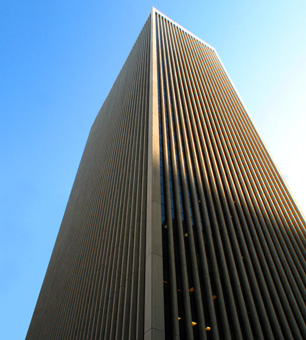Truthout is a vital news source and a living history of political struggle. If you think our work is valuable, support us with a donation of any size.
Washington, DC — Overdraft protection often is a better deal for banks than for consumers, a new study by a federal watchdog agency reveals.
The report, to be released Tuesday by the Consumer Financial Protection Bureau, found that consumers who sign up for banks’ optional overdraft coverage on debit card transactions and ATM withdrawals pay higher fees and are more likely to end up with involuntary account closures than those who decline.
Banks profit from consumers’ misfortune.
Fees for overdraft and non-sufficient funds accounted for more than 60 percent of banks’ total revenue from consumers’ checking accounts in 2011, according to the report.
“Many financial institutions market their overdraft services as a protective measure that offers consumers greater peace of mind and security,” Richard Cordray, the bureau’s director, said Monday in a call with reporters. “They correctly note that consumers often benefit when overdraft transactions are paid, which helps avoid returned checks or declined transactions. But our study also raises questions. What is marketed as overdraft protection can in some instances put consumers at greater risk of harm.”
Cordray said the bureau plans to research overdraft programs further before taking any policy action.
Overdrafts occur when customers try to withdraw or spend more money than they have in their accounts. Banks can block the transaction and charge an “insufficient funds fee,” or allow the money to go through and charge an overdraft fee.
In mid-2010, a new rule by the Federal Reserve stopped banks from charging overdraft fees for ATM withdrawals and most debit card transactions unless the consumer agreed first.
Monday’s report scrutinized data from some of the country’s largest banks, which provided the consumer bureau with information about their overdraft programs and accounts during 2010 and 2011.
Account holders who chose to opt in to overdraft coverage paid an average of $196 in fees in 2011, the report found. In contrast, the average fees for consumers who didn’t opt in were $28.
Bureau officials noted that consumers who overdraft frequently are more likely to consent to overdraft coverage, but even among heavy overdrafters – those who had 10 or more overdrafts during the first half of 2010 – less than half opted in. Account holders who did opt in were more than 2.5 times more likely to have banks close their accounts because of unpaid negative balances, according to the report. Such involuntary closures can make it harder for a consumer to open another account.
The report concluded that banks rely on a confusing array of rules to determine how they impose overdraft fees, coverage limits and the order in which they post transactions, making it hard for consumers to predict or avoid overdraft costs.
“All of this raises questions about the degree to which even the most sophisticated consumer could readily anticipate and manage the cost of engaging in a series of transactions at one institution or compare the cost of overdrafting at different institutions,” the report stated.
A terrifying moment. We appeal for your support.
In the last weeks, we have witnessed an authoritarian assault on communities in Minnesota and across the nation.
The need for truthful, grassroots reporting is urgent at this cataclysmic historical moment. Yet, Trump-aligned billionaires and other allies have taken over many legacy media outlets — the culmination of a decades-long campaign to place control of the narrative into the hands of the political right.
We refuse to let Trump’s blatant propaganda machine go unchecked. Untethered to corporate ownership or advertisers, Truthout remains fearless in our reporting and our determination to use journalism as a tool for justice.
But we need your help just to fund our basic expenses. Over 80 percent of Truthout’s funding comes from small individual donations from our community of readers, and over a third of our total budget is supported by recurring monthly donors.
Truthout has launched a fundraiser to add 310 new monthly donors in the next 4 days. Whether you can make a small monthly donation or a larger one-time gift, Truthout only works with your support.
